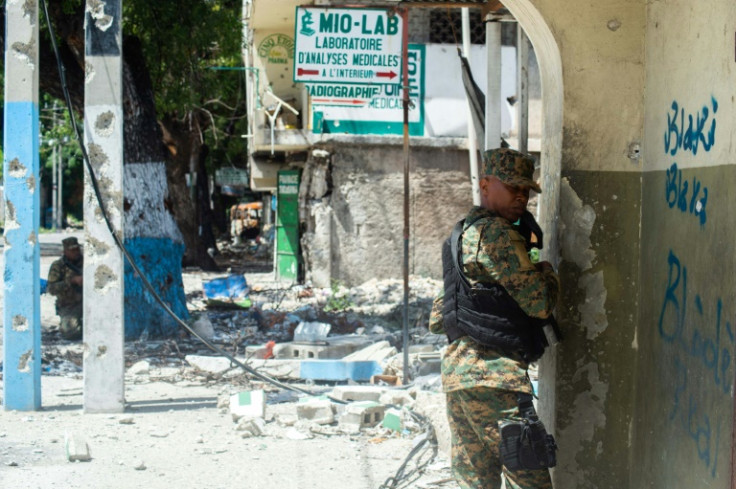
Haiti's capital, Port-au-Prince, risks being completely overrun by gangs and collapsing without more international support, warned UN Secretary-General António Guterres.
In a report presented to the UN Security Council, Guterres emphasized the urgency of bolstering Haiti's national police and the multinational force tasked with combating gang violence. "Time is of the essence," he said, adding that further delays could lead to a "catastrophic collapse of national security institutions."
A multinational force led by Kenya currently has over 600 officers on the ground, including 217 Kenyan additional officers who arrived last weekend. Reinforcements include 150 Guatemalans and a team of eight Salvadoran troops, but the total deployment remains far below the anticipated strength of 2,500 officers. Kenya had initially pledged 1,000 officers.
Since the assassination of President Jovenel Moïse in 2021, gang violence has surged across Haiti, with more than 5,600 people killed last year alone. The UN reported a 20% rise in killings compared to 2023. Gang activities, including massacres, kidnappings, and sexual violence, have displaced over 1 million people, many of whom are now living in overcrowded, unsanitary shelters.
Gang violence, which claimed over 5,000 lives in 2024, has compounded Haiti's broader humanitarian crisis. According to the latest analysis by the Integrated Food Security Phase Classification (IPC), 5.4 million Haitians, or half the population, are struggling to find food daily. The World Food Programme described the situation as the worst hunger emergency in the Western Hemisphere
"I am appalled at the brutality and scale of the violence," Guterres told the council, citing cases of collective rape and child recruitment by gangs. He described the situation as an "existential threat" to the safety of Haitians and the survival of the state, the Associated Press reported.
Haiti's Foreign Minister, Jean-Victor Harvel Jean Baptiste, echoed Guterres' concerns, calling for a UN peacekeeping mission to replace the current multinational force. The mission, supported by nations including the United States and members of the Organization of American States, would be funded through the UN peacekeeping budget. In contrast, the multinational force relies on a trust fund with just $101.1 million in pledges.
Meanwhile, the humanitarian crisis has reached critical levels, with nearly 2 million Haitians facing emergency food insecurity and 6,000 on the brink of starvation. Maria Isabel Salvador, the UN special envoy for Haiti, said that political instability has worsened the crisis, saying, "Setbacks in the political process have created a climate in which these atrocities have become possible."
Guterres warned that the roadmap for restoring democratic institutions by February 2026 is at risk unless urgent action is taken. "We must do everything in our power to prevent such an outcome," he said.
Haitian criminal gangs now aim to transform themselves into a political party. Jimmy "Barbecue" Chérizier, leader of Haiti's powerful gang coalition Viv Ansanm, has announced plans to turn the group into a political party. The move has sparked intense debates about whether gangs should have a role in addressing the country's political and humanitarian crises.
The coalition's name appeared in a document sent to the Caribbean Community (CARICOM) last week, signed by several Haitian politicians proposing changes to the embattled Transitional Presidential Council. The council, tasked with leading Haiti to elections, has faced corruption allegations and public calls for its reconfiguration. The document suggests reducing the council to three members and mentions Viv Ansanm's support for this idea, even though the gang didn't sign the April 2023 political Accord.
This inclusion has drawn sharp criticism. André Michel, spokesperson for the Democratic and Popular Sector, rejected any notion of gang involvement, calling Viv Ansanm a "criminal organization" responsible for widespread violence. Michel insisted there is "no place at the negotiating table" for gangs and argued they should be eradicated, not legitimized.
© 2025 Latin Times. All rights reserved. Do not reproduce without permission.




